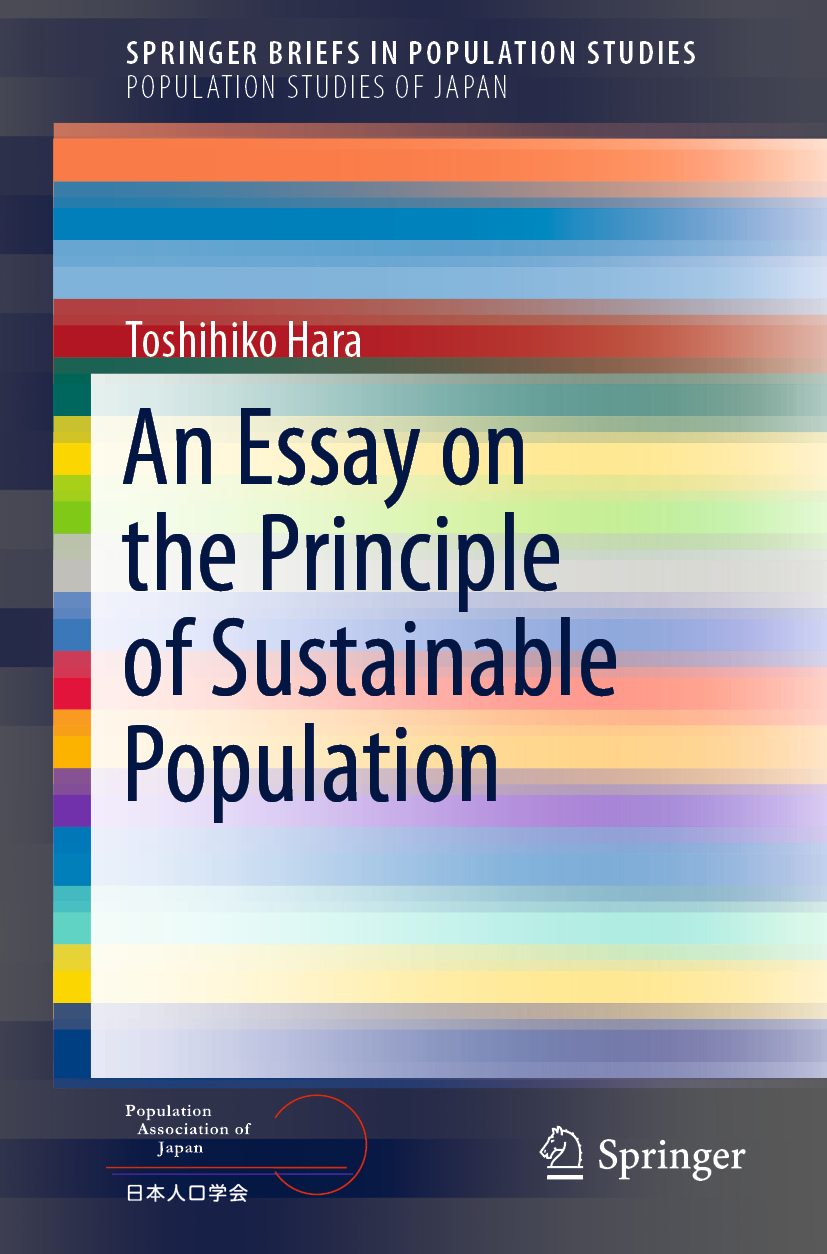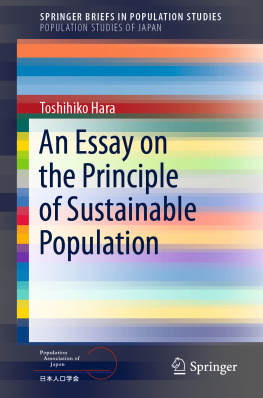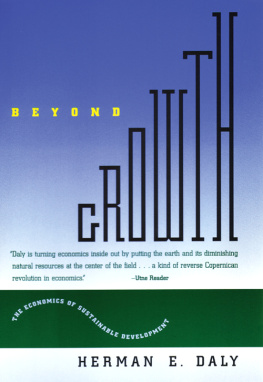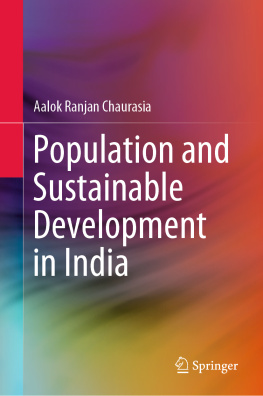Toshihiko Hara - An Essay on the Principle of Sustainable Population
Here you can read online Toshihiko Hara - An Essay on the Principle of Sustainable Population full text of the book (entire story) in english for free. Download pdf and epub, get meaning, cover and reviews about this ebook. year: 2020, publisher: Springer Singapore, genre: Romance novel. Description of the work, (preface) as well as reviews are available. Best literature library LitArk.com created for fans of good reading and offers a wide selection of genres:
Romance novel
Science fiction
Adventure
Detective
Science
History
Home and family
Prose
Art
Politics
Computer
Non-fiction
Religion
Business
Children
Humor
Choose a favorite category and find really read worthwhile books. Enjoy immersion in the world of imagination, feel the emotions of the characters or learn something new for yourself, make an fascinating discovery.
- Book:An Essay on the Principle of Sustainable Population
- Author:
- Publisher:Springer Singapore
- Genre:
- Year:2020
- Rating:5 / 5
- Favourites:Add to favourites
- Your mark:
- 100
- 1
- 2
- 3
- 4
- 5
An Essay on the Principle of Sustainable Population: summary, description and annotation
We offer to read an annotation, description, summary or preface (depends on what the author of the book "An Essay on the Principle of Sustainable Population" wrote himself). If you haven't found the necessary information about the book — write in the comments, we will try to find it.
An Essay on the Principle of Sustainable Population — read online for free the complete book (whole text) full work
Below is the text of the book, divided by pages. System saving the place of the last page read, allows you to conveniently read the book "An Essay on the Principle of Sustainable Population" online for free, without having to search again every time where you left off. Put a bookmark, and you can go to the page where you finished reading at any time.
Font size:
Interval:
Bookmark:

SpringerBriefs in Population Studies presents concise summaries of cutting-edge research and practical applications across the field of demography and population studies. It publishes compact refereed monographs under the editorial supervision of an international Advisory Board. Volumes are compact, 50 to 125 pages, with a clear focus. The series covers a range of content from professional to academic such as: timely reports of state-of-the art analytical techniques, bridges between new research results, snapshots of hot and/or emerging topics, and in-depth case studies.
The scope of the series spans the entire field of demography and population studies, with a view to significantly advance research. The character of the series is international and multidisciplinary and includes research areas such as: population aging, fertility and family dynamics, demography, migration, population health, household structures, mortality, human geography and environment. Volumes in this series may analyze past, present and/or future trends, as well as their determinants and consequences. Both solicited and unsolicited manuscripts are considered for publication in this series.
SpringerBriefs in Population Studies will be of interest to a wide range of individuals with interests in population studies, including demographers, population geographers, sociologists, economists, political scientists, epidemiologists and health researchers as well as practitioners across the social sciences.
The PAJ was established in 1948 and organizes researchers with a wide range of interests in population studies of Japan. The major fields are (1) population structure and aging; (2) migration, urbanization, and distribution; (3) fertility; (4) mortality and morbidity; (5) nuptiality, family, and households; (6) labor force and unemployment; (7) population projection and population policy (including family planning); and (8) historical demography. Since 1978, the PAJ has been publishing the academic journalJinkogaku Kenkyu(The Journal of Population Studies), in which most of the articles are written in Japanese.
Thus, the scope of this series spans the entire field of population issues in Japan, impacts on socioeconomic change, and implications for policy measures. It includes population aging, fertility and family formation, household structures, population health, mortality, human geography and regional population, and comparative studies with other countries.
This series will be of great interest to a wide range of researchers in other countries confronting a post-demographic transition stage, demographers, population geographers, sociologists, economists, political scientists, health researchers, and practitioners across a broad spectrum of social sciences.
Editor-in-chief
Toshihiko Hara, Sapporo, Japan
Series Editors
Shinji Anzo, Tokyo, Japan
Hisakazu Kato, Tokyo, Japan
Noriko Tsuya, Tokyo, Japan
Toru Suzuki, Tokyo, Japan
Kohei Wada, Tokyo, Japan
Hisashi Inaba, Tokyo, Japan
Minato Nakazawa, Kobe, Japan
Jim Raymo, Madison, USA
Ryuichi Kaneko, Tokyo, Japan
Satomi Kurosu, Chiba, Japan
Reiko Hayashi, Tokyo, Japan
Hiroshi Kojima, Tokyo, Japan
Takashi Inoue, Tokyo, Japan
More information about this subseries at http://www.springer.com/series/13101

This Springer imprint is published by the registered company Springer Nature Singapore Pte Ltd.
The registered company address is: 152 Beach Road, #21-01/04 Gateway East, Singapore 189721, Singapore
I would like to thank Prof. Dr. Tilman Mayer, Prof. Dr. Franz-Xaver Kaufmann, Dr. Martin Bujard, Prof. Dr. Hans Bertram, and Prof. Dr. Hans Hoch for our meaningful dialogues on sustainable population development of our societies in Germany in October 2018, which gave me many important additional ideas for this book. I also thank Dr. Ling Sze Nancy Leung for her advices to improve my text as same as my previous work. This research was supported by JSPS KAKENHI Grant Number 23330173 (Study on the Population and Life Course Dynamics in the First and Second Demographic Transition and Their Future Prospects)/26285128 (Study on the New Population Trends and Life Course Changes based on a Contemporary Re-examination of the Demographic Transition Theory). This is Grant-in-Aid for Scientific Research of the Ministry of Education, Culture, Sports, Science and Technology (MEXT), Chief researcher: Ryuichi Kaneko, Vice-Director of National Institute of Population and Social Security Research, Population Statistics of Japan.
According to the UN projection 2017, the worlds population will increase by more than four billion in the next 85 years and will reach 11 billion by 2100. Quoting from Prof. Lams N-IUSSP essay, The worlds next 4 billion (Lam ).
Font size:
Interval:
Bookmark:
Similar books «An Essay on the Principle of Sustainable Population»
Look at similar books to An Essay on the Principle of Sustainable Population. We have selected literature similar in name and meaning in the hope of providing readers with more options to find new, interesting, not yet read works.
Discussion, reviews of the book An Essay on the Principle of Sustainable Population and just readers' own opinions. Leave your comments, write what you think about the work, its meaning or the main characters. Specify what exactly you liked and what you didn't like, and why you think so.












